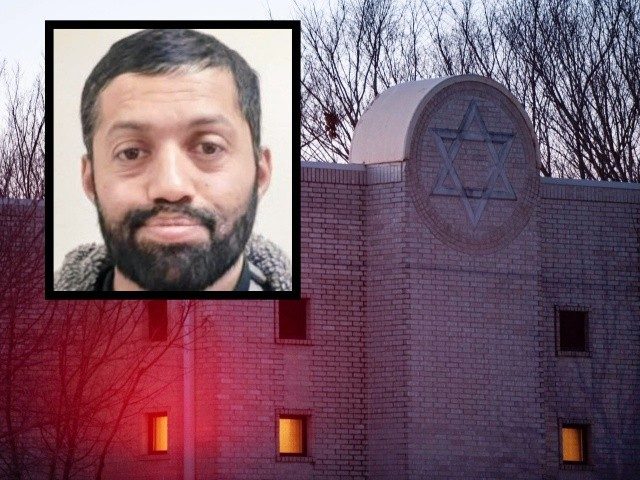The UK national who was shot and killed after an 11-hour hostage standoff at a synagogue in Texas earlier this month was reportedly referred to Britain’s anti-terrorism Prevent programme twice, with the latest referral coming in 2019.
According to a report from the UK’s paper of record, The Times of London, Malik Faisal Akram was referred to the Prevent programme, which seeks to deradicalise potential terrorists, over his radical Islamist views and anti-Western sentiment. It is not currently reported whether he engaged with the programme, as it is voluntary in nature.
Despite being banned from a British court in 2001 after threatening staff and ranting about the September 11th attacks, Akram was not put forward to Channel, which handles the most extreme cases referred to the Prevent Programme.
The would-be terrorist was also reportedly known to Britain’s also domestic security service, MI5. Malik Faisal Akram was investigated for over a month in 2020 following a six-month trip he took to Pakistan. However, the security services determined that he did not pose a threat.
Due to this determination, U.S. authorities were not informed of the potential risk he posed and therefore had no grounds to prevent him from entering the country.
The brother of the Texas terrorist, Gulbar Akram claimed that he had a previous criminal record, saying: “He’s known to police. Got a criminal record. How was he allowed to get a visa and acquire a gun?” Gulbar has also claimed that his brother suffered from “mental health issues.”
On Thursday, The Times reported that Akram — who was shot dead after taking four hostages at the Congregation Beth Israel synagogue in Colleyville, Texas on Saturday — had actually spent time in prison, however, the extent of his criminal behaviour has not been made publicly available.
While he was holding the hostages in the synagogue, Arkam was heard calling for the release of “Lady al Qaeda” Aafia Siddiqui, a Pakistani terrorist who is currently in prison for attempting to kill U.S. military servicemen while being detained in Afghanistan.
As with numerous terrorists known to MI5 going on to commit heinous acts of terrorism, the Prevent programme has a similar history of failing to actually prevent attacks in Britain.
The attacker in the Parsons Green train bombing in 2017, teenage Iraqi asylum seeker Ahmed Hassan was referred to Prevent by one of his school teachers after he declared it was his “duty to hate Britain”, however, he was cleared by the Channel programme shortly before committing the attack, which left 50 people injured.
The Prevent programme was also tasked with monitoring the London Bridge terrorist, Usman Khan, who stabbed two people to death and injured three others in 2019. An inquest into the attack found that the Prevent officers who were responsible for Khan had “no specific training” on terrorism.
The suspect in the shooting of a London police officer in September of last year had also been referred to the programme prior to the killing.
More recently, the suspect in the fatal shooting of a police officer in London in September had been flagged by the programme prior to the attack.
Prevent came under increased scrutiny last year after it was revealed that the killer of a Member of Parliament, Sir David Amess, Ali Harbi Ali was also known to the Prevent programme.
In March of last year, the government’s independent reviewer of terrorism legislation, Jonathan Hall QC issued a report in which he said that there is no evidence showing that the deradicalisation programme has any positive impact on reducing terrorism.
In October, a report from the Henry Jackson Society said that the anti-terror programmes place a disproportionate emphasis on far-right extremism, thereby limiting their effectiveness in combatting Islamist terrorism, which the think tank said “absolutely dwarfs” the threat from the far-right.
Follow Kurt Zindulka on Twitter here @KurtZindulka

COMMENTS
Please let us know if you're having issues with commenting.